In the rapidly evolving realm of programming, keeping your skills sharp and staying in tune with the latest trends is crucial. Learning doesn’t stop at mastering a particular programming language or understanding a specific algorithm; it’s a lifelong journey. As we traverse the dynamic landscape of technology, some resources prove invaluable, aiding us in honing our skills and broadening our horizons. Among these resources are well-curated books, timeless in their wisdom, packed with insights that remain relevant despite the changing technological landscape.
In this post, we delve into the top 10 essential books that have shaped the journeys of countless successful programmers and can undoubtedly enrich your coding prowess. Whether you’re a seasoned developer or an aspiring programmer, these books promise a riveting exploration into the depths of programming concepts, strategies, and best practices. Buckle up for an enlightening literary journey that is about to change your programming world!
1. “Code Complete 2” by Steve McConnell
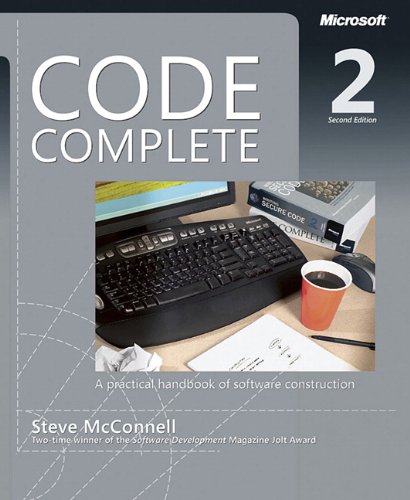

Why should you read “Code Complete 2”? Well, McConnell provides us with an invaluable compendium of best practices in software development, drawn from a variety of sources. It’s a classic that dives into the smallest details of programming, from naming variables to organizing whole classes and modules. Whether you are an experienced programmer or a newbie, you will definitely learn new techniques that will transform your approach to coding and help you avoid common pitfalls.
McConnell’s book is not about a single language or development methodology, it transcends these boundaries and touches on universal themes of software craftsmanship. As you journey through the book, you will build a toolbox of strategies to improve your code’s quality, making it more readable, robust, and maintainable. You’ll find “Code Complete 2” an indispensable resource, no matter where you are in your coding journey.
Finally, it’s worth mentioning that “Code Complete 2” has a unique ability to remain relevant despite rapid changes in the industry. It does not focus on passing trends, but on solid principles of software construction that have withstood the test of time. This makes it a timeless classic that deserves a spot on your bookshelf.
2. “Clean Code: A Handbook of Agile Software Craftsmanship” by Robert C. Martin
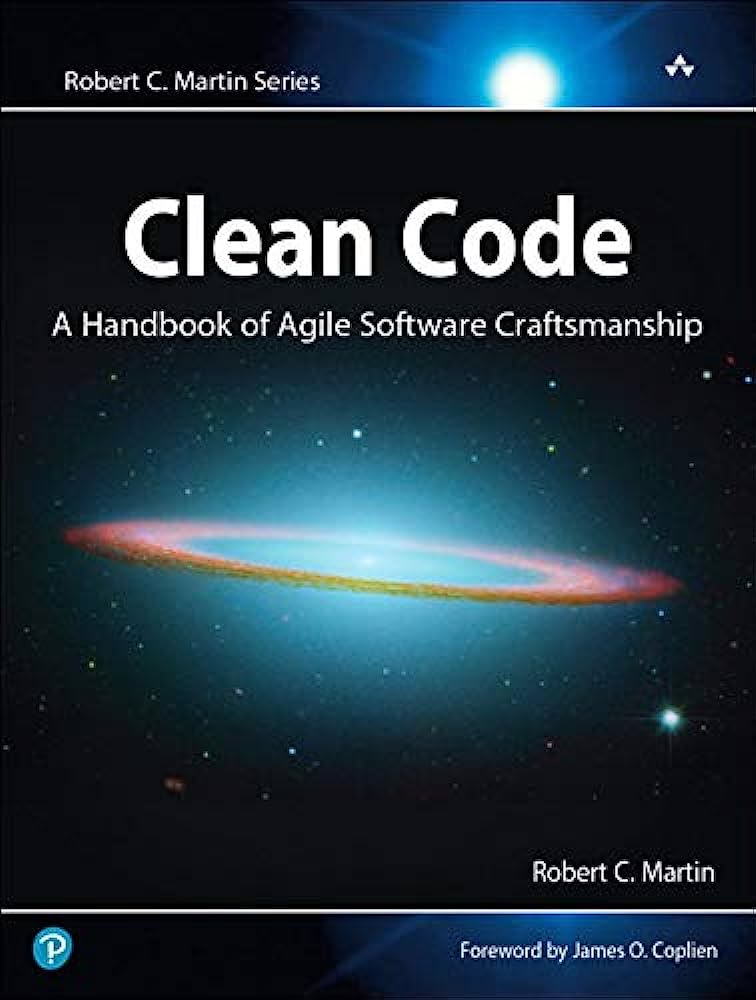

Why should every developer read “Clean Code”? Firstly, it is because Robert C. Martin, known as Uncle Bob, has penned a manifesto that embodies the spirit of professional software development. His message is clear: code can be clean, efficient, and elegant. And he not only tells you this, he shows you how to achieve it with practical examples and case studies.
In “Clean Code”, Martin talks about principles, patterns, and practices that apply across all languages and domains. He emphasizes how good coding practices can significantly boost the productivity and joy of developers, making coding a craft rather than a tedious task. Furthermore, Martin provides real-world examples of refactoring code and transforming it from a nightmare into a clear and understandable structure.
In essence, “Clean Code” teaches you to care for your code as a craftsman. It changes the way you think about coding, influencing not just the way you write code, but how you approach problem-solving and debugging in programming. “Clean Code” isn’t just about code, it’s about attitudes, professionalism, and lifelong learning in software development.
3. “The Pragmatic Programmer: Your Journey to Mastery” by Andrew Hunt and David Thomas
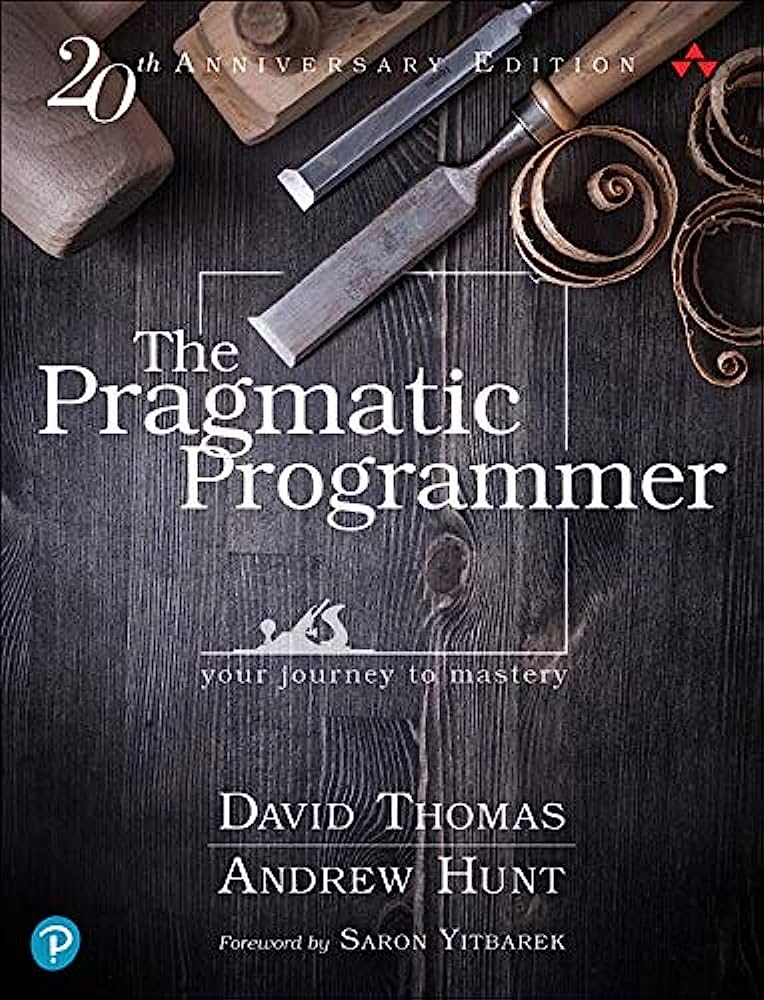

Why should you read “The Pragmatic Programmer”? The answer is simple: it teaches you to think like a programmer. The book isn’t about a specific language or framework, but about the approach and mindset with which you tackle your work. Hunt and Thomas encourage a practical, well-rounded approach to problem-solving in software development. They guide you in avoiding coding by coincidence, instead advocating for a deep understanding of how and why your code works.
“The Pragmatic Programmer” offers a wealth of tips, tricks, and strategies that will help you become a more efficient coder. It covers a diverse set of topics, including code generators, debugging, and concurrency. The authors provide a unique perspective on these topics, showing you not just the ‘what’ but the ‘why’.
“The Pragmatic Programmer” is a step toward embracing the idea of code as a craft. The book encourages continual learning, adaptation, and pragmatism in your work. It equips you with a mindset of mastering the art of programming, making you a better coder and ultimately boosting your career.
4. “Introduction to Algorithms” by Thomas H. Cormen, Charles E. Leiserson, Ronald L. Rivest, and Clifford Stein
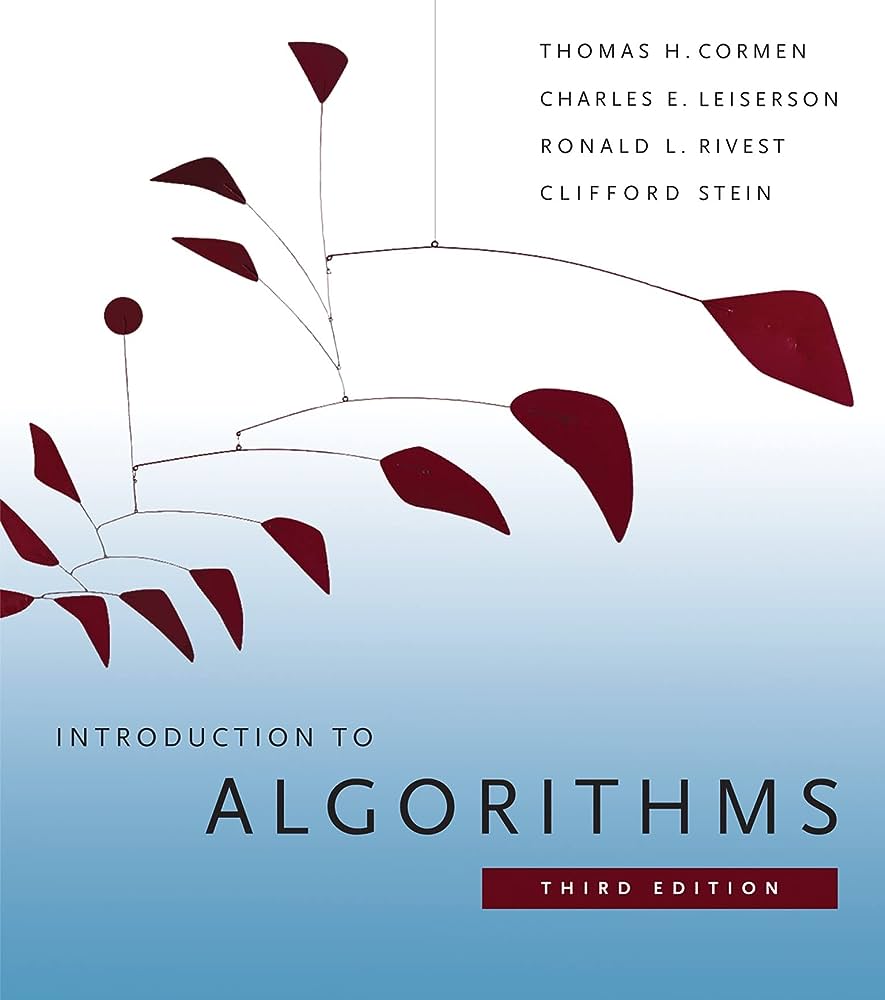

“Introduction to Algorithms” is a seminal work in computer science that has shaped the understanding of algorithms for thousands of students and professionals. This book is your key to unlocking the power of algorithms, giving you a solid foundation in data structures, algorithm design, problem-solving, and complexity analysis.
The authors do a brilliant job of breaking down complex concepts into understandable chunks, accompanied by pseudocode and detailed explanations. They cover a broad range of algorithms, making this book a valuable resource for anyone who wants to improve their problem-solving abilities. From sorting and searching to graph algorithms and computational geometry, this book has it all.
“Introduction to Algorithms” is not just a book, it’s an investment in your future. Its comprehensive coverage of the topic will continually serve as a reference throughout your career. This book is your roadmap to understanding and implementing algorithms, a critical skill in every software developer’s toolkit.
5. “Design Patterns: Elements of Reusable Object-Oriented Software” by Erich Gamma, Richard Helm, Ralph Johnson, and John Vlissides
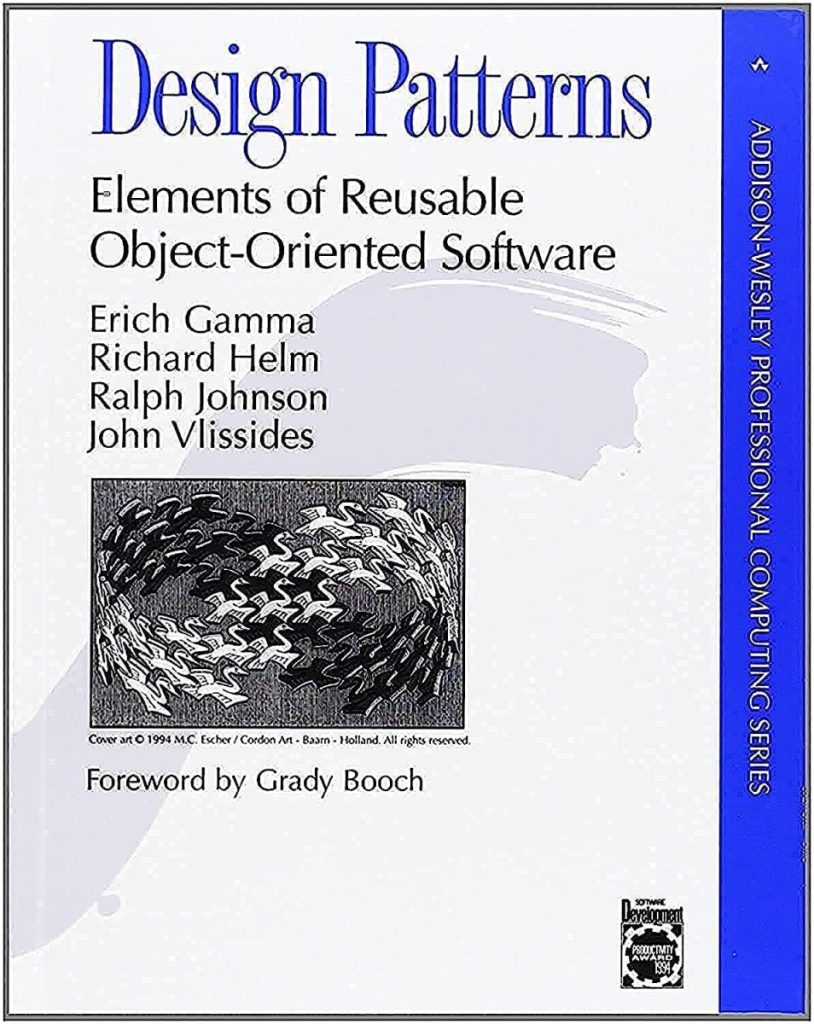

“Design Patterns” is a game-changer. It’s a book that will change the way you design and implement software systems. This book is a catalog of 23 classical design patterns that are the basis for creating flexible, reusable, and elegant object-oriented software.
The authors – often referred to as the “Gang of Four” – have done a tremendous job of explaining each pattern in detail, complete with diagrams, sample code, and real-world examples. They provide valuable insight into when and how to use each pattern, helping you make the most of object-oriented principles.
Reading “Design Patterns” will enrich your design vocabulary and empower you to communicate more effectively about software design. This book is a must-read for anyone serious about object-oriented software development. Its timeless wisdom will help you tackle complex design problems and create high-quality software.
6. “Refactoring: Improving the Design of Existing Code” by Martin Fowler
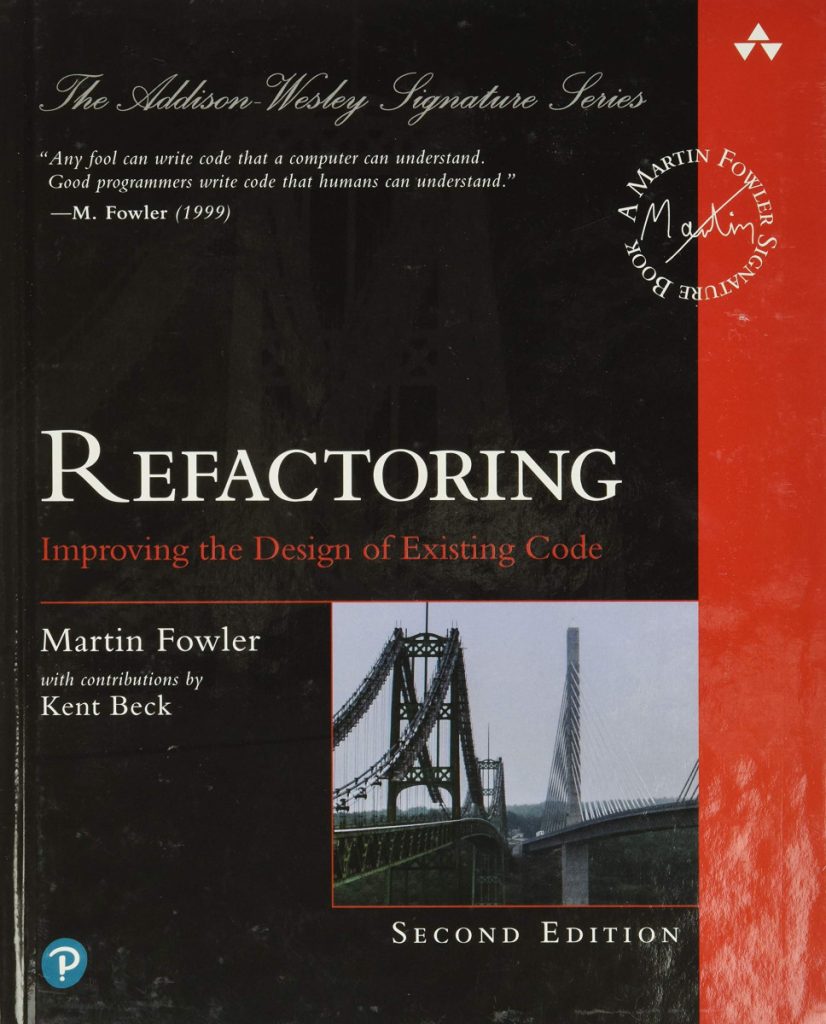

“Refactoring” is an essential practice for any software developer. This book by Martin Fowler introduces you to the concept of refactoring and provides you with a comprehensive catalog of techniques to improve the design and quality of your code.
Fowler does a fantastic job of breaking down the principles and practices of refactoring, accompanied by clear examples and insightful discussions. He explains why refactoring is a vital part of the development process and how it can make your code more readable, maintainable, and flexible.
“Refactoring” also provides you with the knowledge to detect “code smells” – indicators of problems in your code – and shows you how to apply specific refactorings to improve your code. Reading this book will equip you with a valuable skillset that every programmer should have in their arsenal.
7. “The Art of Computer Programming” by Donald E. Knuth
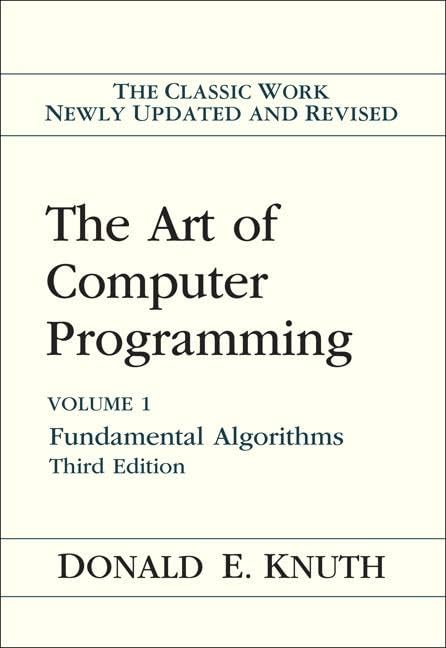

“The Art of Computer Programming” is a classic work in computer science. This multivolume set by Donald E. Knuth – a pioneer in the field – is a deep dive into many areas of programming and algorithms. It’s often considered the “bible” of computer programming.
Each volume covers a specific topic, such as fundamental algorithms, seminumerical algorithms, and sorting and searching, providing in-depth knowledge and understanding. Knuth’s clear explanations, combined with his detailed pseudocode, offer a deep understanding of the inner workings of algorithms and data structures.
Reading “The Art of Computer Programming” is a long-term commitment that will reward you with a profound understanding of the theoretical underpinnings of computer science. It’s an investment in your education that will pay dividends throughout your career.
8. “Programming Pearls” by Jon Bentley
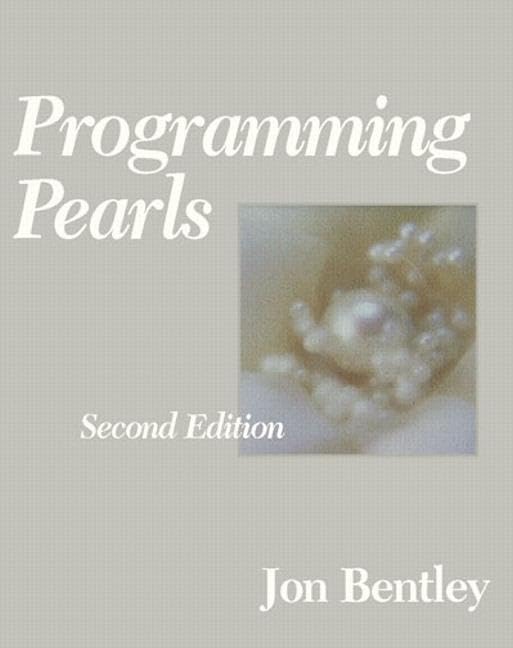

“Programming Pearls” is a collection of essays about a variety of topics in programming, particularly performance and efficiency. The book is packed with practical advice, interesting problems, and clever solutions that will give you new insights into the art of programming.
The author, Jon Bentley, has a knack for turning complex concepts into compelling tales. Each chapter presents a unique challenge and walks you through the process of finding a solution, emphasizing problem-solving techniques and the importance of careful design and coding.
“Programming Pearls” will make you a better problem solver. It’s a book that encourages you to think, question, and explore the boundaries of programming. It’s not just a book about programming; it’s a book about thinking like a programmer.
9. “The Mythical Man-Month: Essays on Software Engineering” by Frederick P. Brooks Jr.


“The Mythical Man-Month” is a classic in software project management. It’s filled with insights into the human side of software development, addressing topics like scheduling, team dynamics, and project management. The author shares his experiences from IBM’s development of the OS/360 system, providing timeless lessons about the nature of software development.
The famous statement “Adding manpower to a late software project makes it later” comes from this book. It offers invaluable can be planned, coordinated and monitored. It’s full of wisdom about the social and individual issues in software development that remain relevant to this day.
“The Mythical Man-Month” is a must-read for anyone involved in managing or working on software projects. Its lessons will help you navigate the complex social dynamics and project management challenges that are an intrinsic part of software development.
“Working Effectively with Legacy Code” by Michael Feathers


In the programming world, there’s a common saying that code becomes legacy as soon as it’s written. “Working Effectively with Legacy Code” is a crucial resource for understanding and effectively dealing with this pervasive problem. In contrast to many programming books which focus on crafting pristine new code, Feathers’ book is all about making the best of what’s already there.
The book provides techniques for managing large, untested legacy code bases — a scenario programmers often encounter in real jobs. It also details strategies to optimize existing software, making it more robust and maintainable, even when the original code was far from perfect. Reading this book provides the tools necessary for refactoring code, improving software design, and minimizing bugs, which can greatly increase your effectiveness and efficiency as a programmer.
“Working Effectively with Legacy Code” is essential because it addresses the ‘real-world’ programming scenarios most of us find ourselves in, making it a necessary addition to every coder’s reading list. Its practical focus on dealing with real, live, messy code makes it as valuable as any guide to writing new code from scratch.




Recent Comments